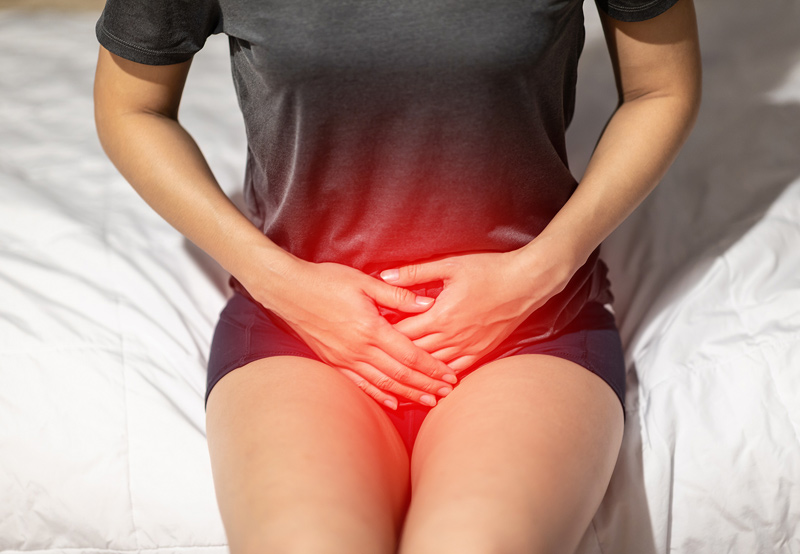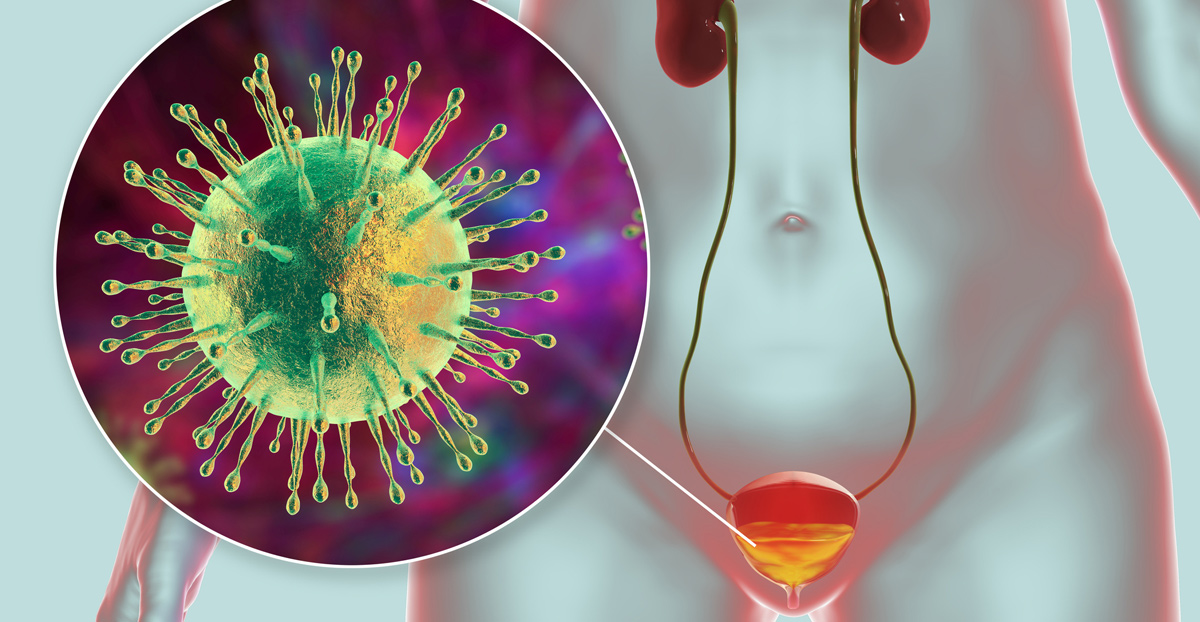

Radiation cystitis is a rare side effect of radiation treatment for cancers of the prostate, rectum, endometrium, and cervix. Patients may experience inflammatory changes in bladder tissue.
Symptoms of Cystitis
Patients with cystitis may experience the following symptoms:
- Low-grade fever
- Pelvic discomfort
- Blood in the urine (hematuria)
- A feeling of pressure in the area below the abdomen
- Cloudy or foul-smelling urine
- Frequent urination in small amounts
- Pain or a burning sensation when urinating
- A strong, persistent urge to urinate
Patients should seek immediate medical attention if they experience fever, chills, nausea, vomiting, and pain in the side or back.
Left untreated, cystitis may lead to a kidney infection and blood in the urine.

Risk Factors For Cystitis
Individuals may be at increased risk of cystitis if they:
- Are sexually active. Intercourse may push bacteria into the urethra.
- Are pregnant. Hormone changes that occur during pregnancy may increase the risk of a bladder infection.
- Use certain types of birth control. Diaphragms increase the risk of a urinary tract infection (UTI) and contain a spermicide that increases risk.
- Have gone through menopause. Hormone changes after menopause may lead to UTIs.
Additional risk factors for cystitis include:
- Long-term use of urinary catheters increases the risk of bacterial infections and bladder tissue damage.
- Changes in the immune system that occur with HIV infection, diabetes, and cancer treatment.
- Obstruction in urine flow caused by bladder stones or an enlarged prostate.
Questions To Ask During A Doctor’s Appointment
Patients experiencing symptoms of cystitis, should consider asking the following questions during a doctor’s appointment:
- What is causing my symptoms?
- What kind of tests will I need?
- What are my treatment options?
- Is there a risk of complications or side effects from treatment?
- What can I do to prevent recurrent cystitis?
- What is your recommended treatment approach?
Diagnosing Cystitis
To diagnose cystitis, physicians may recommend urine analysis and imaging tests.
Urinalysis may help identify signs of infection, such as blood, bacteria, or pus. Imaging tests such as X-ray or ultrasound can help identify other potential causes of bladder inflammation.
Treatment Options For Cystitis
Patients with bacterial cystitis may be treated with antibiotics for three days to one week, depending on the severity of the infection. Recurrent UTIs may require longer treatment with antibiotics or a referral to a urologist to identify the cause.
Hospital-acquired infection is resistant to common types of antibiotics and so patients will need different types of antibiotics and multiple treatment approaches. Older women who have gone through menopause may be treated with a vaginal estrogen cream if it doesn’t increase their risk of other health conditions.
Other forms of noninfectious cystitis may be alleviated by avoiding products containing harsh chemicals. Drinking lots of water can also help eliminate substances that irritate the bladder.
Patients with cystitis caused by radiation therapy will involve pain medication.
Lifestyle and home remedies for cystitis also include placing a heating pad on the lower abdomen to soothe bladder pressure and pain. Patients should also avoid alcohol, caffeine, citrus juices, and spicy foods to minimize irritation to the bladder.
